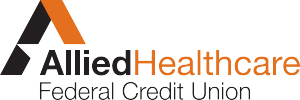
Ways to Stay Protected from COVID-19 Scams
The coronavirus pandemic has resulted in new types of scams that can cause havoc and financial harm to members.
Buried among social posts and news headlines that talk about stay-at-home orders and share data of the virus outbreak, are also those that warn of the growing dangers of criminal activity from the COVID-19 outbreak:
Recently, The Federal Trade Commission published the following tips to help the public avoid coronavirus scams:
- The government will not send texts, emails or call you about your stimulus check. If you receive a message from someone claiming to be from the government, do not respond.
- Ignore online offers claiming to provide vaccinations or treatments to treat or prevent COVID-19.
- Be on the lookout for illegal robocalls that may pitch anything from low-priced health insurance to work-at-home opportunities.
- The CDC and WHO will not send emails to consumers. Don’t trust emails that claim to be from these sources and don’t click on links from sources you don’t know. Use sites like coronavirus.gov to get the latest information.
- Do your research before making a donation. Never donate in cash, by gift card, or by wiring money.
As a reminder, if you are eligible for an economic impact payment and have not signed up with the IRS to receive payments electronically, you will be receiving your check in the mail. The physical checks will be sent after all the electronic payments are delivered, which could take up to two months. You can check your economic impact payment status here. Regardless of whether or not you’ll be receiving a physical economic impact check, you should be mindful of mail theft risk and check your mail daily.
Allied Healthcare Federal Credit Union cares about your financial health and well-being. We want to remind you that we’re here for you and that we offer free identity theft protection to all members with Value and Dividend Checking Accounts.



